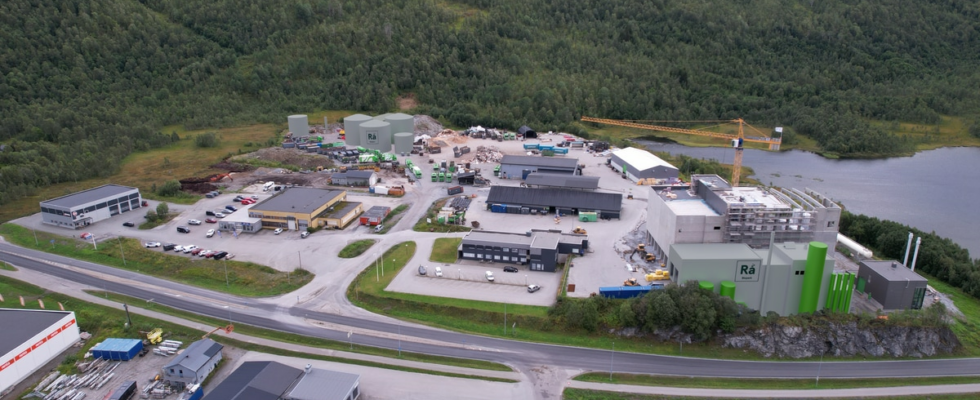Northern Norway’s largest environmental collaboration, Rå Biopark, is to establish itself in Senja. Specifically, the area of Senja Waste IKS. This is stated by Rå Biopark in a press release on Friday morning. Following a request from Senja Avfall IKS, the owners agreed to move the largest biogas plant in the country to existing land at Senja Avfall. Originally, it was thought that the biopark would be established in Skibotndalen. – The conclusion is that the climate and environmental profile of the project will be greatly strengthened, while at the same time looking at large financial savings for the municipalities, says incoming chairman of Rå Biopark, Øivind Østbø. Saves the climate and the wallet When the biogas plant is put into operation, he will be responsible for the treatment of food waste for 47 municipalities in northern Norway. This through a total investment of over NOK 550 million. In total, the company expects a cost reduction of over NOK 100 million by moving the biogas plant to Senja. There, the company will move directly into the existing building stock, and make use of renewable thermal energy. This will help to greatly reduce the climate and environmental pressure for the project, the company believes. Managing director of Senja Avfall IKS, Michael Erstad, believes the agreement will strengthen the parties involved. – Rå Biopark will, by moving into our existing buildings and using our renewable energy, become the largest industrial reuse project in Northern Europe, and one of the largest green collaborative projects in Norway ever. It is a decisive solution for us, and to solve the common waste challenges in the region, he says in the press release. Dissatisfied with the move In Storfjord municipality, where the original plant was supposed to be located, a big disappointment. – This was a very sad message to receive, as Storfjord municipality has worked for several years to get this establishment in place. The news about the move therefore came as a big surprise to us and not least to those who work there today, says mayor Geir Varvik (H) in a press release. He points out that employees at the current facility may eventually lose their jobs as a result of the move. – A district municipality like Storfjord needs new jobs. A biogas plant would solve the odor problems that have been a challenge for the residents. We are disappointed, and it is sad that the plant has now decided to move, he says further. Varvik states that the municipality will now work further to find alternative possibilities to make up for the added value the facility would have created. He points out that the move also means that other companies, which would also establish themselves at the facility, will have to change or shelve their plans. DISSATISFIED: Mayor of Storfjord municipality, Geir Varvik (H). Photo: Rune Nordgård Andreassen / news – Changing the assumptions Managing Director of Remiks Miljøpark AS, Britt Mathisen Limo, believes that the assumptions for the project will now be completely changed. She further believes that from an owner’s perspective it would be irresponsible not to proceed with such a move. – It has been decided to move because it results in me having large savings on the investment. The business result at full operation is monetarily strengthened, and the environmental perspective and footprint of the entire concept will be much better when moving, she says to news. SATISFIED: CEO of Remiks Miljøpark AS, Britt Mathisen Limo. Photo: David Jensen / JensenMedia AS She thinks it is incredibly important to have such industrial ventures in Northern Norway, and believes this will benefit the entire country. This is, among other things, through young people coming back or staying in the region. – This is such an exciting project that it attracts people from outside the region, who find the region exciting to establish themselves in, she says, and adds: – This is an opportunity for the institutions to secure interesting and good jobs, and for the students may have interesting tasks to work on in the future. ACADEMY: Limo believes the investment is a unique opportunity for educational institutions in the future. Photo: Henrik Einangshaug / news It is estimated that production capacity will increase by 10 per cent, with a final production corresponding to 70 GWh when the plant is moved. This corresponds to the annual energy consumption of 3,000 households. The company will, when operations are underway, produce 12 percent of Norway’s consumption of biogas. It is expected that the biopark will process over 70,000 tonnes of waste from households and businesses in northern Norway. Published 06.09.2024, at 09.30 Updated 06.09.2024, at 10.33
ttn-69
Rå Biopark is established in Senja – saves millions by moving green industry – news Troms and Finnmark

